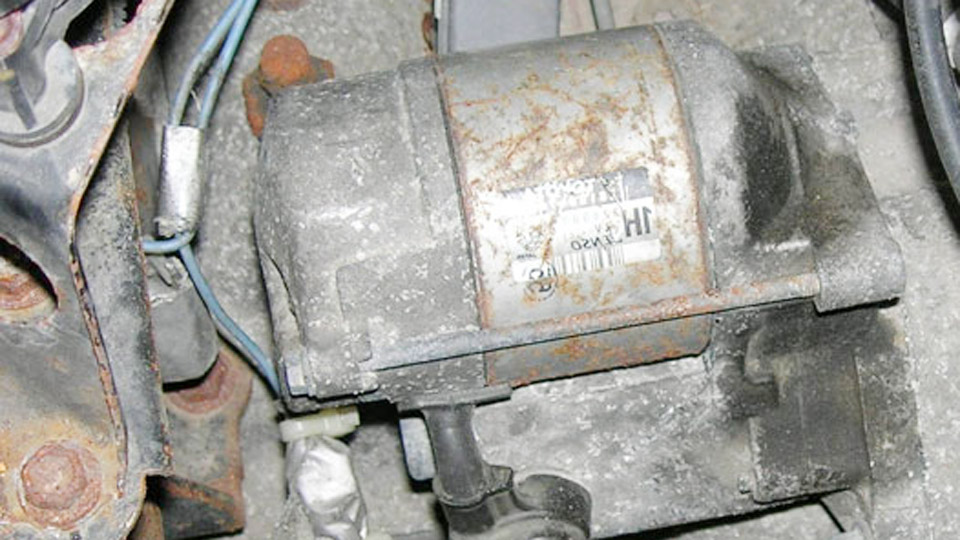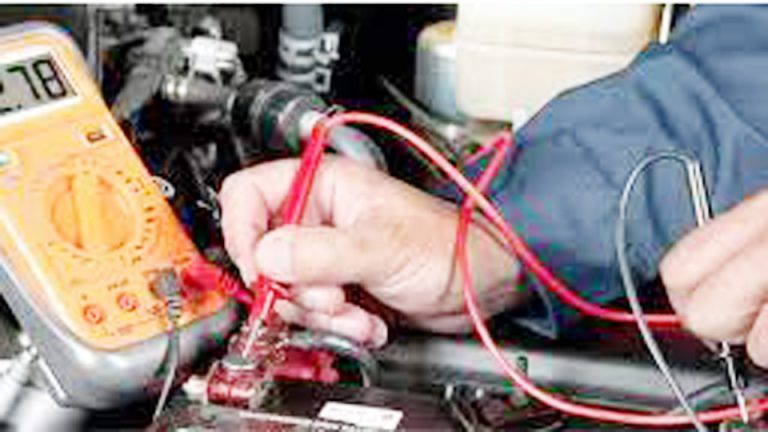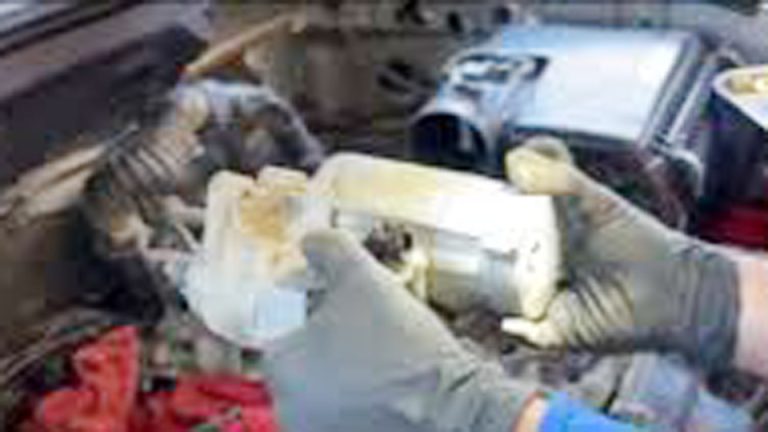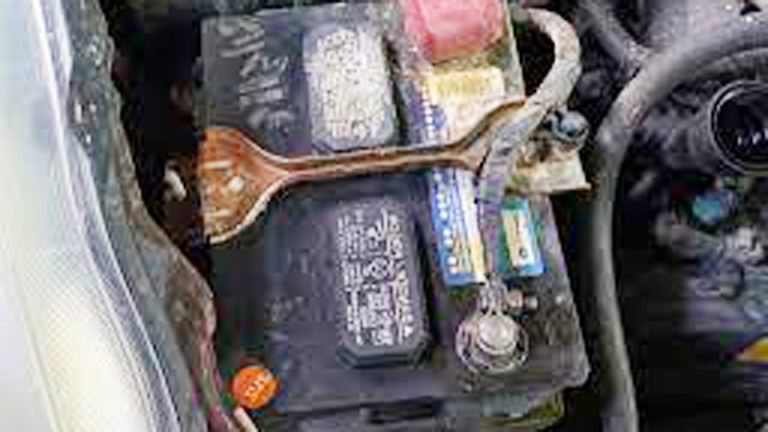I’ll never forget the morning my 2009 Chevy Malibu refused to start. I turned the key, expecting the engine to roar to life, but all I got was a faint click and a sinking feeling in my gut. I was late for a family brunch, stranded in my driveway, and wondering what went wrong. After some troubleshooting, I pinpointed the issue to a faulty starter.
That’s when the question hit me: “Is it worth replacing a starter?” I’d tackled car repairs before, but this one had me weighing costs, effort, and whether it made sense for my aging car. Spoiler alert: it was worth it, but the decision wasn’t straightforward. Let me share my journey, from diagnosing the problem to getting back on the road, so you can decide if replacing your starter is the right move.

Image by carfromjapan
A starter replacement can cost anywhere from $250 to $500 at a shop, or $80 to $200 if you do it yourself, but the real question is whether the repair makes sense for your car’s age, condition, and your budget. I’ll walk you through my experience, the factors I considered, and the lessons I learned, so you can make an informed choice.
What Does a Starter Do, and Why Does It Matter?
Before I dive into my story, let’s talk about what a starter does. In my Malibu, the starter is a small electric motor that kicks the engine into action when you turn the key. It engages with the flywheel, cranks the engine, and then disengages once the engine is running.
If it fails, your car won’t start, no matter how healthy the battery or engine is. When my starter went bad, I heard that telltale clicking sound—a dead giveaway that it wasn’t doing its job.
I’d dealt with dead batteries and alternator issues before, so I knew a bad starter could strand me just as easily. For me, the stakes were high: my Malibu was my daily driver, and I couldn’t afford to be without it for long. Understanding the starter’s role helped me realize why fixing it was critical, but I still had to decide if it was worth the cost.
Diagnosing the Problem: My Troubleshooting Process
When my car wouldn’t start, I didn’t rush to conclusions. I’ve always been a bit of a DIY mechanic, so I grabbed my multimeter and started checking things in my driveway. First, I tested the battery—it read 12.6 volts, which is normal for a fully charged battery.
The terminals were clean, and the cables were tight, so I ruled out a battery issue. Next, I turned the key and listened. That single “click” instead of a crank pointed straight to the starter.
To be sure, I tried an old trick: I tapped the starter gently with a hammer while my wife turned the key. Sometimes, this can jostle a stuck starter solenoid, but it didn’t work for me. I also swapped the starter relay with another in the fuse box—no change.
At that point, I was confident the starter motor was dead. If you’re hearing a click, no crank, or nothing at all when you turn the key, it’s likely your starter, but always test the battery first to avoid wasting time.
Weighing the Decision: Is Replacing the Starter Worth It?
Once I knew the starter was the problem, I had to decide if replacing it made sense. My Malibu had 120,000 miles on it, and while it was reliable overall, it wasn’t exactly a collector’s item. I sat down with a cup of coffee and ran through the factors that mattered to me:
Cost of Repair: I called local shops and got quotes ranging from $300 to $450, including parts and labor. A new starter cost $100–$200, while a remanufactured one was $80–$150. Doing it myself would save on labor, but I’d need tools and time.
Car’s Value: My Malibu was worth about $4,000, according to online estimators. Spending $400 on a repair seemed reasonable compared to buying a new car, which would cost thousands.
Car’s Condition: Aside from the starter, my car was in good shape—new tires, decent brakes, and no major engine issues. If the car had other big problems, I might’ve leaned toward scrapping it.
My Needs: I needed a reliable daily driver for my commute and errands. Replacing the starter would keep me on the road without the hassle of car shopping.
In the end, I decided it was worth replacing the starter because the repair cost was a fraction of the car’s value, and I wasn’t ready to replace the vehicle. If your car is older or in rough shape, you might lean differently, but for me, it was a no-brainer.
Choosing Between DIY and a Professional Mechanic
The next big question was whether to replace the starter myself or take it to a shop. I’ve done basic repairs like oil changes and spark plugs, so I wasn’t intimidated by the idea of swapping a starter.
But I also knew my Malibu’s engine bay was cramped, and I didn’t have a full set of tools or a lift. After watching a few videos online, I estimated the job would take me 2–4 hours, factoring in my moderate skills and the inevitable stuck bolt.
I called around to compare professional costs. Most shops quoted 1–2 hours of labor at $90–$120 per hour, plus the cost of the starter. Since I needed the car back quickly for work, I decided to let a mechanic handle it.
If you’re considering DIY, it’s doable with a socket set, wrenches, and maybe a breaker bar for tough bolts. Just be ready for tight spaces and potential frustrations, like rusted hardware or tricky wiring.
My Experience at the Auto Shop
I took my Malibu to a local shop I’d used for a brake job a year earlier. They had good reviews and were upfront about costs, which I appreciated. When I dropped off the car, I explained the symptoms: no crank, a clicking noise, and a healthy battery.
The mechanic did a quick test to confirm the starter was bad, checking the voltage at the solenoid and listening for the telltale click. He agreed it needed replacing and said they could have it done by the afternoon.
The repair took about 1.5 hours. They used a remanufactured starter with a two-year warranty, which they had in stock. While I waited, I chatted with the mechanic about how some cars—like certain trucks or luxury models—can take longer because the starter is harder to reach.
In my Malibu, it was under the engine, but still accessible with a few bolts and a disconnected battery cable. They also inspected the flywheel for damage, which can wear out a new starter if it’s chewed up.
The total bill was $360—$110 for the starter, $220 for labor, and a small shop fee. It hurt to write the check, but when I started the car, it fired up instantly. The mechanic showed me the old starter, which had worn-out brushes and a fried solenoid. Seeing it made me feel better about the cost—it was clearly toast.
Factors That Influence the Cost and Value of Starter Replacement
Through this process, I learned that several things affect whether replacing a starter is worth it and how much it’ll cost:
Car Make and Model: Starters in compact cars like my Malibu are usually easier to replace, keeping labor costs down. In SUVs or high-end vehicles, tight engine bays can mean more time and higher costs.
Part Quality: A cheap aftermarket starter might save you $50 upfront but could fail in a year. I went with a remanufactured unit from a reputable brand, and it’s held up for over 18 months.
Labor Rates: Shops in my area charged $90–$120 per hour. If you’re in a big city, expect higher rates, which can push the total cost closer to $500.
DIY Feasibility: If you’ve got the tools and experience, you can cut costs significantly. My friend replaced his Honda Civic’s starter in three hours for $100, but he had to deal with a stuck bolt that nearly derailed him.
Here’s a table to compare DIY versus professional replacement, based on my experience:
| Aspect | DIY Replacement | Professional Replacement |
|---|---|---|
| Cost | $80–$200 (part only) | $250–$500 (part + labor) |
| Time | 2–4 hours, depending on skill | 1–2 hours, plus wait time |
| Tools Needed | Socket set, wrenches, jack stands | None (shop provides tools) |
| Risk | Possible damage to flywheel or wiring | Low with a trusted mechanic |
| Experience Level | Moderate mechanical skills required | No experience needed |
Challenges I Faced and Lessons Learned
This wasn’t a smooth ride, and I hit a few bumps along the way. First, I ignored the early signs of trouble—occasional slow cranks—for a couple of weeks. By the time the starter fully failed, I was stuck at home, which could’ve been avoided if I’d acted sooner. If you hear odd noises when starting your car, don’t wait.
Another challenge was picking the right shop. One place quoted me $480 without explaining the breakdown, which felt like a red flag. I went with a shop that was transparent about parts and labor, and I saved about $100. Always ask for a detailed quote upfront.
Finally, I learned that not all starters are created equal. I was tempted by a cheap online option, but my mechanic warned that low-quality parts often fail quickly. Spending a bit more for a quality remanufactured or OEM starter was worth it for the peace of mind.
Tips for Deciding If a Starter Replacement Is Worth It
Based on my experience, here are some practical tips to help you decide whether to replace your starter:
Assess Your Car’s Value: Use an online tool to check your car’s market value. If the repair cost is less than 10–15% of the car’s worth, it’s usually a good investment.
Test Before You Replace: Make sure it’s the starter, not the battery or alternator. A multimeter or a quick test at an auto parts store can save you from a wrong fix.
Shop Around for Quotes: Call at least three shops to compare prices. Ask about the starter’s brand, warranty, and what’s included in the labor.
Consider DIY Carefully: If you’re handy and have the tools, DIY can save you $150–$300. But watch videos specific to your car model to avoid surprises.
Check Related Parts: Ask your mechanic to inspect the flywheel and battery connections during the repair. A damaged flywheel can ruin a new starter, and I’ve seen it happen to a friend.
Frequently Asked Questions
How do I know if my starter needs replacing?
My Malibu made a clicking sound when I turned the key, and the engine wouldn’t crank. The battery tested fine, so I knew it was the starter. If you hear a single click or no sound at all, test the battery first, then suspect the starter.
How much does it cost to replace a starter?
I paid $360 for a professional replacement, including parts and labor. Costs typically range from $250 to $500, depending on your car and shop rates. DIY can cost $80–$200 for the part alone, but you’ll need tools and time.
Is it worth replacing a starter on an older car?
For my 2009 Malibu, it was worth it because the car was worth $4,000 and in good shape otherwise. If your car’s value is low or it has other major issues, you might consider selling or scrapping it instead.
Can I drive with a bad starter?
I ignored slow cranks for too long, and my car eventually wouldn’t start at all. A failing starter can leave you stranded, so get it fixed as soon as you notice symptoms like clicking or sluggish starting.
How long does a new starter last?
My mechanic told me a quality starter can last 100,000–150,000 miles or 7–10 years. Mine failed at 120,000 miles, which is typical. A good part and proper installation can keep it going for years.




